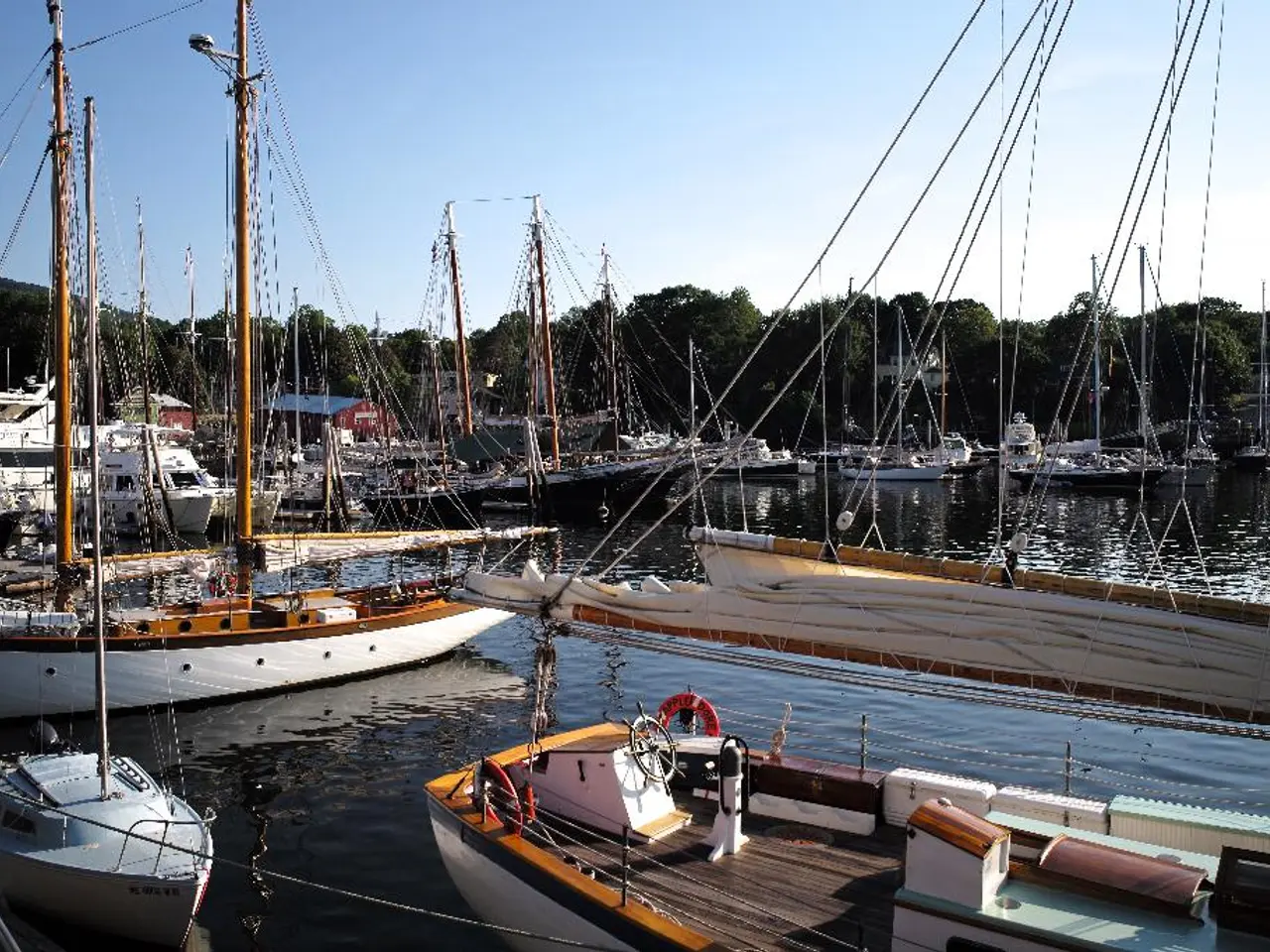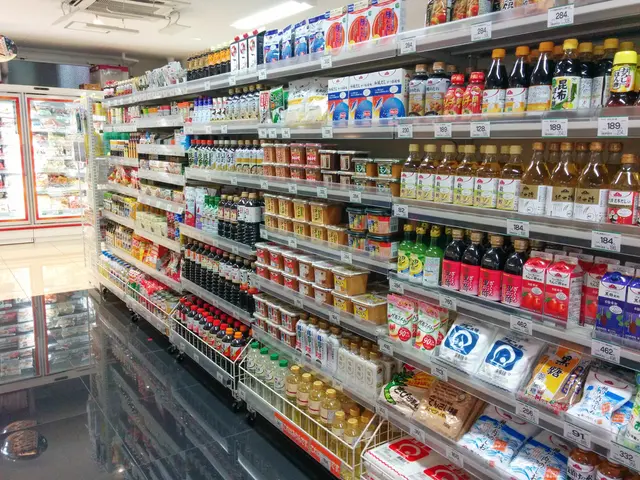Lawsuits Filed by Panama to Terminate Contract for HK-Managed Canal Port Due to Ongoing US-China Competition
Panama's Legal Challenge to Port Contracts Shakes Up Global Port Ownership and US-China Relations
Panama's Supreme Court is set to decide on two lawsuits filed by the Comptroller General, Anel Flores, challenging the 25-year concession granted to Panama Ports Company (PPC) [1][2]. This legal battle could significantly impact global port ownership structures and escalate geopolitical tensions, particularly between the US and China.
Implications for Global Port Ownership:
The legal challenge arises amid a stalled $23 billion sale of CK Hutchison’s global port assets, including Panama’s ports, to a consortium led by US investor BlackRock and Mediterranean Shipping Company (MSC) [1][2]. Beijing has pressured for Chinese state-run Cosco’s inclusion in the deal, complicating the transaction and heightening scrutiny [1][2].
If successful, Panama’s move could set a precedent for other countries to challenge long-standing foreign port concessions on grounds of national interests, royalties, or contract irregularities [3][5]. Moreover, Panama’s president has suggested that if the courts nullify PPC’s contracts, public-private partnerships could assume control, potentially diversifying ownership models away from dominant single foreign operators [2].
Geopolitical and US-China Relations:
The Panama Canal and its adjacent ports are critical to global maritime logistics and have become flashpoints in the broader strategic competition between the US and China. US political figures, notably former President Donald Trump, have framed the canal's control as a matter of reducing Chinese influence and "taking back" control [1][2][4].
Panama’s legal challenge creates leverage for negotiations over port control, signalling that Panama will not passively accept deals heavily influenced by either Washington or Beijing, instead seeking terms aligned with its national interest. This flexibility introduces uncertainty for both US and Chinese geopolitical strategies [3].
If Chinese state interests (via Cosco) gain a foothold or if US-based consortia control the ports, it will influence regional power balances and access to one of the world's most important maritime chokepoints, intensifying great power competition in Latin America and global trade routes [1][3][4].
PPC's Response and Concerns Over Investor Confidence:
PPC, controlled 90% by CK Hutchison, has appealed for legal protection and stability, stating that its operations contribute significantly to Panama’s economy, including 25,000 jobs and billions in revenue [3]. Analysts warn that nullifying the contract might seriously damage investor confidence unless clear legal frameworks balance national interests with foreign participation [6].
In conclusion, Panama’s legal challenge to CK Hutchison’s port contracts represents a critical juncture in port ownership structures by questioning foreign control and contractual legality, while amplifying geopolitical rivalry between the US and China over strategic infrastructure in Latin America. The outcome could reshape global maritime logistics ownership and signal a more assertive stance by smaller states in balancing great power influence [1][2][3][5].
[1] Reuters. (2021, October 15). Panama's legal challenge to port contracts could reshape global port ownership. Retrieved from https://www.reuters.com/world/americas/panamas-legal-challenge-port-contracts-could-reshape-global-port-ownership-2021-10-15/
[2] Wall Street Journal. (2021, October 15). Panama's Legal Challenge to Port Contracts Could Reshape Global Port Ownership. Retrieved from https://www.wsj.com/articles/panamas-legal-challenge-to-port-contracts-could-reshape-global-port-ownership-11634347000
[3] Financial Times. (2021, October 15). Panama's legal challenge to port contracts could reshape global port ownership. Retrieved from https://www.ft.com/content/3a92825e-1c3a-4d8e-9453-76248e6d3778
[4] Bloomberg. (2021, October 15). Panama's Legal Challenge to Port Contracts Could Reshape Global Port Ownership. Retrieved from https://www.bloomberg.com/news/articles/2021-10-15/panama-s-legal-challenge-to-port-contracts-could-reshape-global-port-ownership
[5] Associated Press. (2021, October 15). Panama's legal challenge to port contracts could reshape global port ownership. Retrieved from https://apnews.com/article/panama-ports-china-united-states-business-e62f6b99f29319e673d5b86c94e31c2a
[6] BBC News. (2021, October 15). Panama's legal challenge to port contracts could reshape global port ownership. Retrieved from https://www.bbc.com/news/business-58990554
- The legal challenge in Panama could prompt other countries to reconsider long-standing foreign port concessions, potentially altering global port ownership structures based on national interests, royalties, or contractual irregularities.
- The geopolitical implications of Panama's legal battle extend beyond its borders, impacting tensions between the US and China and possibly reshaping regional power dynamics, particularly concerning the control of strategic infrastructure in Latin America.
- The Panamanian government's actions signal a shift towards safeguarding national interests, creating uncertainty for both US and Chinese geopolitical strategies, as smaller states assert themselves in the face of great power influence.
- The decision made by Panama's Supreme Court regarding the port contracts could influence the global economy and finance, as investments in industries such as shipping, logistics, and trade may be contingent on stable and transparent legal frameworks that balance national interests with foreign participation.
- The multinational port operator Panama Ports Company (PPC) has expressed concerns that the nullification of their contracts could have far-reaching consequences, potentially damaging investor confidence and jeopardizing the job market and revenue within the Panamanian economy.




